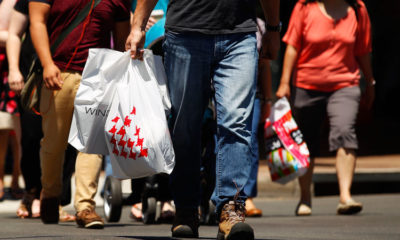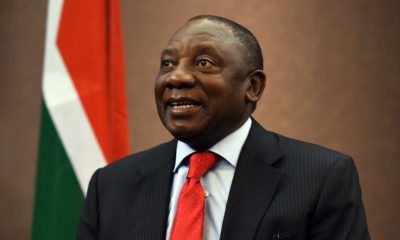South Africa’s economy is grappling with a new wave of uncertainty as the nation faces political turmoil following its recent elections.
The country’s gross domestic product (GDP) unexpectedly contracted by 0.1% in the first quarter of 2024, reversing the revised growth of 0.3% seen in the previous quarter, according to a report released by Statistics South Africa on Tuesday.
This contraction has sent ripples through the economy, causing widespread concern among economists, investors, and citizens alike.
The GDP decline was largely attributed to contractions in key sectors, particularly mining, manufacturing, and construction.
These sectors, which together comprise more than 20% of the nation’s GDP, have been hit hard by weak demand and a resurgence of rotational power cuts.
Statistician General Risenga Maluleke reported that the mining and quarrying sector’s contribution to GDP fell by 25 billion rand ($1.3 billion) to 100 billion rand, while the manufacturing sector saw a reduction of 26 billion rand, dropping to 217 billion rand for the quarter.
The contraction took most analysts by surprise. Of the eleven economists surveyed by Bloomberg, only two anticipated the downturn, highlighting the pervasive unpredictability in South Africa’s economic landscape.
This unexpected slump has also impacted the national currency, with the rand trading 0.9% weaker at 18.6883 per US dollar as of 1 p.m. in Johannesburg.
Economic indicators suggest that the upcoming second quarter may see some improvement due to reduced congestion at ports, enhanced electricity capacity, and a potential rise in global commodity prices.
However, the outlook remains heavily dependent on the political climate and the alliances formed by the ruling African National Congress (ANC) post-elections.
The ANC, which lost its parliamentary majority for the first time since 1994 in the May 29 elections, is currently in coalition talks with several opposition parties.
The political landscape is fraught with uncertainty. President Cyril Ramaphosa’s allies are advocating for a coalition with the centrist Democratic Alliance (DA), while his opponents prefer aligning with the leftist Economic Freedom Fighters (EFF) or the newly established uMkhonto weSizwe Party (MKP), led by former President Jacob Zuma.
The nature of the coalition will significantly influence investor sentiment and economic policy.
According to Annabel Bishop, chief economist at Investec Bank Ltd., “A lot depends on the politics and what type of alliances we see.”
A coalition with the DA is expected to boost investor confidence, spurring investment and economic growth. Conversely, a partnership with the EFF or MKP could create initial apprehension among investors due to potential policy shifts, particularly towards looser fiscal policies that could drive up borrowing costs, slow economic growth, and exacerbate the deficit and debt burden.
Household spending, which constitutes about two-thirds of the GDP, fell by 0.3% in the first quarter, reflecting the pressures of persistently high interest rates and economic instability.
This decline in consumer spending underscores the broader economic challenges facing South Africa as it navigates through this period of political and economic turbulence.

 Billionaire Watch3 weeks ago
Billionaire Watch3 weeks ago
 Startups4 weeks ago
Startups4 weeks ago
 News4 weeks ago
News4 weeks ago
 News4 weeks ago
News4 weeks ago
 Bitcoin4 weeks ago
Bitcoin4 weeks ago
 Naira4 weeks ago
Naira4 weeks ago
 Forex3 weeks ago
Forex3 weeks ago
 Treasury Bills4 weeks ago
Treasury Bills4 weeks ago

























